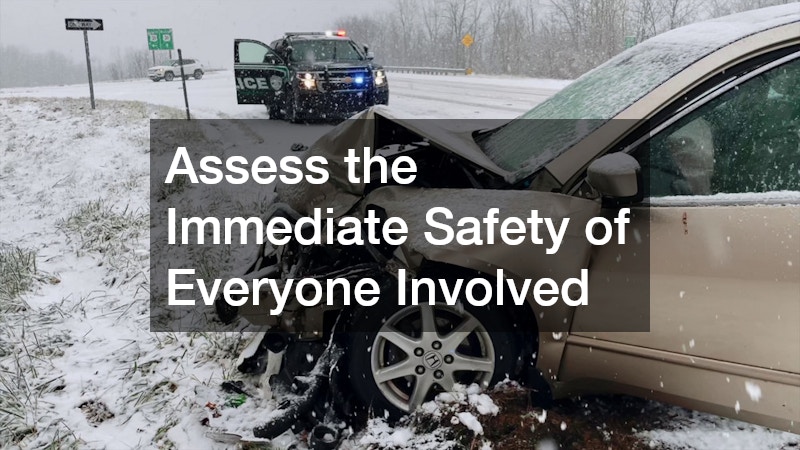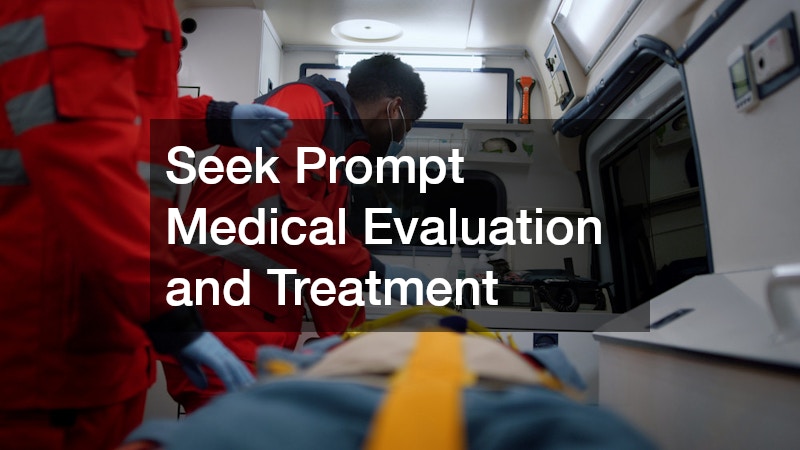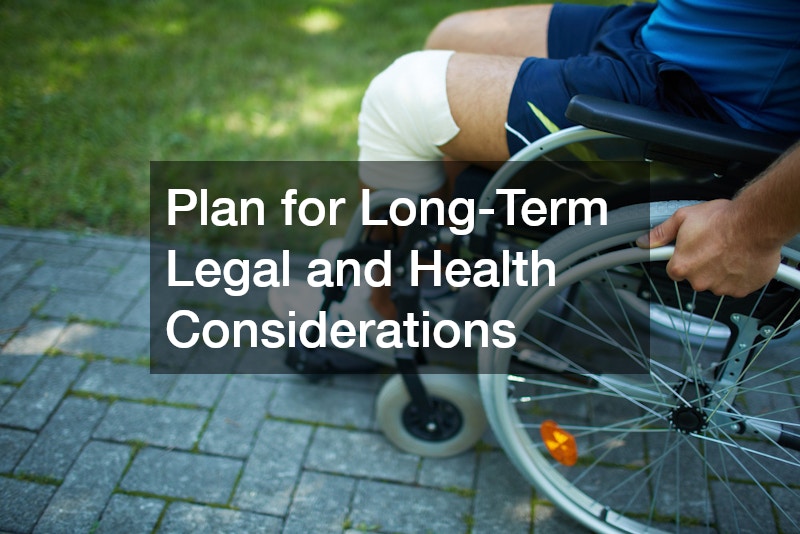A drunk driving collision is a traumatic and life-altering event that can happen to anyone, regardless of how cautious they are behind the wheel. The emotional, physical, and financial consequences are often overwhelming, especially when such an accident occurs unexpectedly. In the moments immediately following a collision, it can be difficult to know what to do, whom to call, or how to protect yourself and others involved. Your actions during and after the incident can significantly impact not only your recovery but also any subsequent legal and financial proceedings.
Taking a calm, informed approach is critical in the wake of a drunk driving collision. While prioritizing safety and securing medical help is always essential, understanding the steps that follow can empower you to protect your health, rights, and future. This guide provides practical advice and essential steps to follow after being involved in such a collision.
Assess the Immediate Safety of Everyone Involved

Immediately after a drunk driving collision, your priority should be to assess the safety of everyone involved. Make sure that you, your passengers, and anyone else at the scene are out of harm’s way. If your vehicle is in a dangerous location, such as the middle of a busy intersection or highway, move it to the shoulder or a safer area if possible. Turn on your hazard lights, and avoid standing near moving traffic. If you or anyone else is injured, do not attempt to move them unless necessary, as this could worsen specific injuries. Staying calm and aware in these initial moments can help prevent further accidents or complications.
After ensuring that the immediate environment is secure, it’s important to check yourself and others for signs of injury that may not be immediately visible, such as disorientation, dizziness, or numbness. In some cases, the effects of a collision aren’t fully felt until hours or even days later. This is where professional support, including services such as rehabilitation therapy, can play a crucial role in long-term recovery. Even if injuries appear minor, follow-up care is essential.
Contact Emergency Services Without Delay
As soon as it is safe to do so, contacting emergency services is not just a recommended action—it is a legal and ethical obligation. Dial 911 immediately after a drunk driving collision to report the incident and request medical assistance if needed. The presence of law enforcement ensures that the situation is handled properly and that a police report is filed, which is critical for any future legal or insurance matters. Paramedics will also evaluate injuries on the scene, ensuring that everyone involved receives appropriate care as quickly as possible.
In situations where law enforcement determines that a driver was intoxicated, criminal charges may follow. This can lead to the arrest and detainment of the impaired driver, and in some cases, even passengers or others involved. When this happens, legal procedures may begin rapidly, and individuals may require access to services such as bail bonds to secure a release from custody pending court appearances. Understanding these legal dynamics is essential, especially if you are a victim in the crash or if someone you know has been detained.
Document the Scene Thoroughly and Accurately
Once you’ve ensured safety and contacted emergency services, your next priority should be to document the scene of the accident. This step is essential, as it creates a record of the event that can support any future claims or legal actions. Use your smartphone or a camera to take clear photos of all vehicles involved, damage to property, road conditions, skid marks, traffic signs, and anything else relevant to the incident. Try to capture multiple angles, and if possible, record short video clips as well. Also, gather contact information from witnesses, noting their names and statements while events are still fresh in their memory.
This type of documentation is often invaluable when working with your local insurance agency, as it provides concrete evidence to help assess liability and process your claim. Insurance companies rely heavily on visual proof and eyewitness accounts to determine fault and calculate damages. A well-documented scene can expedite the claims process and protect you from being wrongly blamed or shortchanged. Whether you’re the victim or simply trying to prove your account of a drunk driving collision, organized and accurate records can make a significant difference in the outcome.
Seek Prompt Medical Evaluation and Treatment

Even if you feel uninjured after a collision, it’s crucial to get evaluated by a medical professional as soon as possible. Adrenaline and shock can mask pain or injury symptoms in the immediate aftermath, and some injuries, like whiplash, internal bleeding, or traumatic brain injuries, may not be evident right away. By visiting a hospital or urgent care center promptly, you ensure that any health concerns are identified and treated early. Additionally, a formal medical report can serve as critical documentation in the event of future claims or legal action.
Beyond your physical well-being, early medical intervention also strengthens your position when working with a personal injury law firm. If the drunk driving collision leads to long-term health issues or financial losses due to medical bills or missed work, these legal professionals can help you build a compensation case. However, delayed treatment or a lack of documentation can weaken your claim.
Avoid Making Statements That May Be Used Against You
In the confusion following a drunk driving collision, it can be tempting to explain what happened or apologize—even if you’re not at fault. However, making spontaneous statements, especially in front of other parties or law enforcement, can be risky. Anything you say in these early moments could later be interpreted as an admission of guilt or liability. It’s important to remain polite and cooperative, but limit your comments to factual, necessary information. Let the police gather details and focus on ensuring everyone’s safety rather than trying to clarify or justify the situation on your own.
This becomes particularly important in cases where fault is disputed or legal action is likely. Experienced defense attorneys know how easily offhand comments can be twisted during investigations or court proceedings. Even if you believe you’re simply being helpful, your words can be used to shape narratives that don’t work in your favor. Whether you’re a victim or a driver involved in the incident, exercising caution in your communications is critical. After a drunk driving collision, letting professionals handle sensitive discussions is often the best path forward.
Notify Your Insurance Provider as Soon as Possible
Once you’ve addressed immediate medical and safety concerns, it’s essential to notify your insurance provider about the incident. Prompt communication helps initiate the claims process and ensures that your account of the events is officially recorded while the details are still fresh. Be prepared to provide basic information about the time, location, and circumstances of the accident, as well as any documentation or photographs you’ve collected. Keep your statements factual and avoid speculating about fault until all the evidence has been reviewed.
As your claim progresses, the financial implications of a drunk driving collision may become more complex, especially if injuries, legal fees, or long-term disability are involved. In these cases, tax accountants can play a surprisingly important role. They can help you understand how settlements, legal expenses, or medical costs might affect your taxes, particularly if you’re receiving compensation or dealing with lost wages. Collaborating with a tax professional ensures that you’re not caught off guard when it’s time to report income or deductions related to the incident.
Consult with Legal Professionals About Your Rights

Legal questions often arise quickly after an accident, especially if intoxication was a factor. Understanding your rights and responsibilities early on can help you avoid common pitfalls. This includes knowing how to respond to insurance requests, how to handle communication with the other driver’s representation, and what options you have for pursuing compensation or pressing charges. Consulting with a legal professional soon after the incident ensures that you receive advice tailored to your situation and jurisdiction.
In situations involving alcohol-impaired driving, it’s especially wise to speak with a drunk driving lawyer. These specialists understand the unique legal processes and consequences surrounding DUI-related accidents and can advocate effectively for your interests, whether you’re seeking damages or defending yourself against accusations. They can also help you navigate police reports, medical records, and any court filings. When a drunk driving collision leads to legal action, having an experienced lawyer in your corner can make the difference between a favorable outcome and a stressful, drawn-out ordeal.
Understand the Legal and Financial Implications
Being involved in a drunk driving collision often has repercussions that extend far beyond the day of the incident. In addition to physical injuries and vehicle damage, there may be long-term legal and financial effects. You may need time off work to recover, lose income, or face lasting health challenges that affect your ability to perform everyday tasks. Understanding these possibilities early allows you to plan accordingly and seek the right support systems, both legal and medical.
In severe cases, your injuries may qualify as a long-term or permanent disability, triggering a completely different set of legal rights and benefits. This is where disability law comes into play. These laws provide protections and offer potential financial assistance to individuals who are no longer able to work or require accommodations in their daily lives. If your mobility, cognition, or ability to earn a living is compromised due to a drunk driving collision, it’s essential to understand how these legal frameworks can support your recovery and financial stability.
Explore Support Services for Recovery and Stability
Recovery after a drunk driving collision involves more than just healing from physical injuries. Emotional trauma, financial instability, and lifestyle disruptions are common challenges that can follow you long after the event. Fortunately, there are many community resources and professional services designed to help victims regain a sense of stability. This might include counseling, financial planning, physical therapy, or support groups focused on accident recovery.
Surprisingly, some professionals who specialize in injury-related cases, such as slip and fall lawyers, may also provide valuable insights or referrals for victims of auto accidents. While their primary focus may differ, these legal experts share a common understanding of the processes involved in proving injury liability and securing compensation. Their familiarity with personal injury claims can be valuable, especially if you’re looking for broader support beyond your immediate legal team. No matter the type of drunk driving collision you’re recovering from, tapping into a vast network of support services can ease the path forward.
Plan for Long-Term Legal and Health Considerations

Thinking beyond the initial aftermath of a collision is key to fully protecting your future. Legal disputes, lingering health issues, and financial concerns can stretch on for months—or even years—after the event. It’s wise to consider how your choices now might impact your future well-being, such as deciding whether to pursue a lawsuit, requesting workplace accommodations, or planning for ongoing medical care. Staying proactive helps you maintain control over your recovery journey and legal standing.
This is where working with a local lawyer can offer distinct advantages. A nearby legal expert is more familiar with regional laws, court systems, and local resources, making them a powerful ally in addressing long-term concerns. Whether you’re considering civil action, negotiating a settlement, or simply navigating paperwork, having someone close to home who understands the legal landscape can reduce stress and increase efficiency. If your drunk driving collision leads to ongoing legal or health challenges, a local advocate can be an invaluable guide.
A drunk driving collision can upend your life in an instant, creating a ripple effect of emotional, physical, and financial strain. From assessing immediate safety and contacting emergency services to dealing with long-term medical care and legal representation, each step you take matters. Being informed about your rights and responsibilities can help alleviate some of the chaos and enable you to move forward with clarity and confidence. Knowing who to call, what to document, and when to seek help ensures you don’t have to navigate this overwhelming experience alone.
Each person’s path to recovery will look different, depending on the severity of the incident and the resources available. Whether you’re the injured party or indirectly affected, tapping into support systems—from healthcare professionals to legal experts—can provide structure during a disorienting time. By understanding the process and taking deliberate action, you can reclaim a sense of control and begin the journey toward healing. While a drunk driving collision may bring serious challenges, it doesn’t have to define your future.



